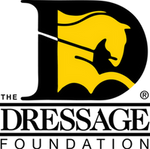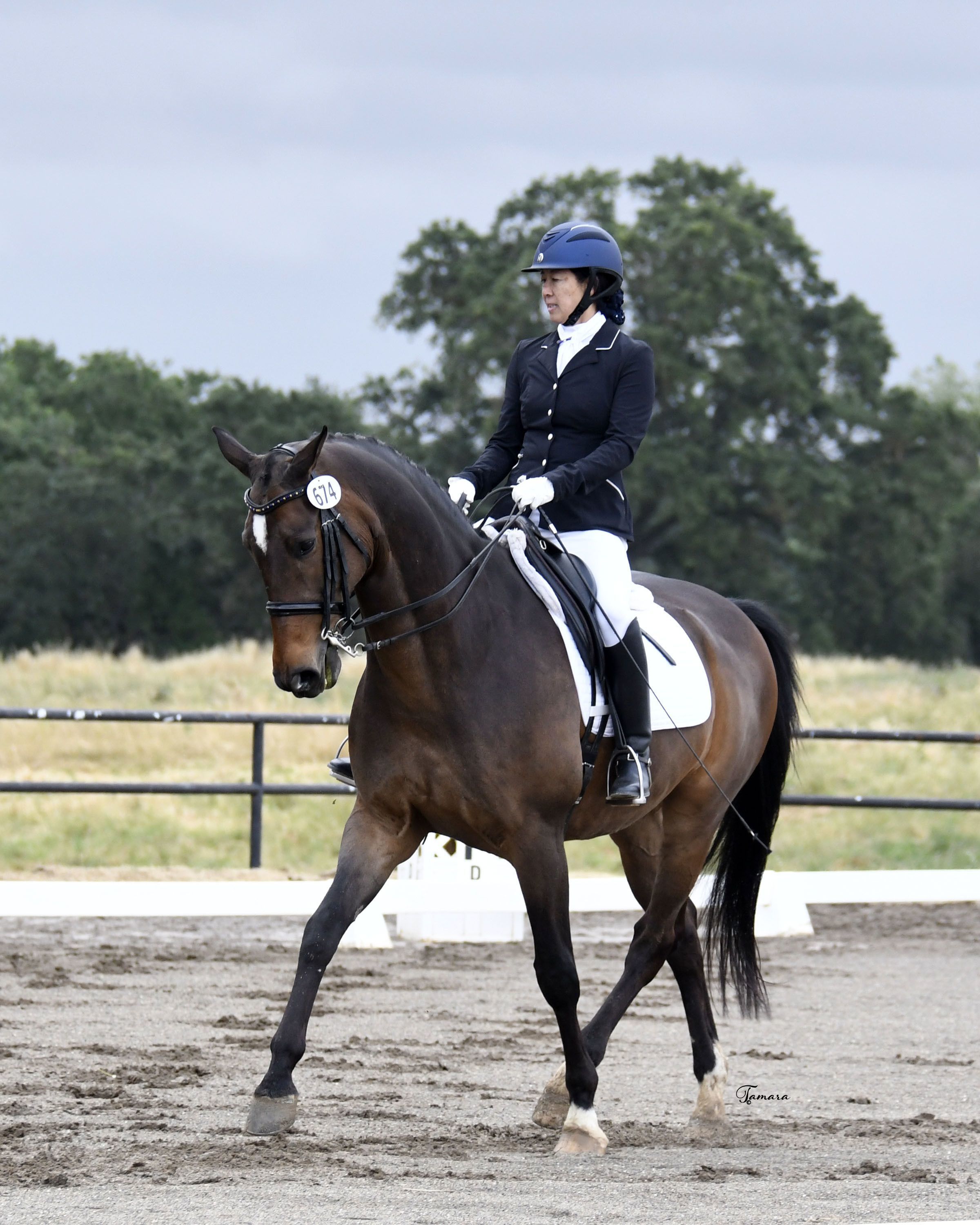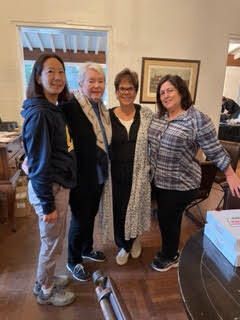
Left to right: Michele Ng, Glenda McElroy, Meaghan Mallory, Annette Pressas
My plan to become a successful show manager included becoming familiar with the duties of the many volunteers and office staff. I have volunteered as ring steward, scorer, runner, equipment checker, and scribe. Now I needed to become familiar with the duties of a show secretary as well as a show manager. While COVID and EHV-1 restrictions are winding down, they are still changing the horse show environment. E-scribing and internet scheduling and score posting are more prevalent and will become the norm.
I used my TDF Lloyd Landkamer Fund grant to fly to Burbank, CA, to shadow dressage manager Glenda McElroy. Glenda is a Level 5 show manager and this was a Level 3 show. I arrived the day before the show started to learn the manager’s attention to the grounds, stabling, and the many things that go on before the competition begins. I was accompanied by Annette Pressas an experienced local show secretary, who agreed to help me learn the duties of a show secretary.
When we arrived, the Flintridge Riding Club was busy making sure the internet would be reliable and an additional well pump could provide enough water for the four competition and warm-up arenas. Glenda was making sure signs for parking, lunging areas, and manure disposal were in place and directing vendors. The facility was celebrating its 100th anniversary, and the California Dressage Society was having a southern regional adult amateur competition on Sunday. Excitement was in the air now that COVID and EHV-1 restrictions have been lifted and we could finally have a Level 3 show at a favorite facility.
The show was a wonderful opportunity to observe e-scribing from Deb Heier, who is also an "r" dressage Technical Delegate. Meaghan Mallory (show secretary-Level 5) was efficient and cheerfully juggled many tasks. Doris North, "r" dressage Technical Delegate and Jean Kraus "R" dressage Technical Delegate were happy to discuss recent rule changes.
Glenda calmly let the team members do their jobs and explained that the first four hours of the show are the most hectic as people settle into the flow. I noticed that included competitors as well as show management and volunteers. COVID and EHV-1 interruptions have taken their toll, as we resume routines while adapting to added requirements of declaration forms, temperature checks, COVID tests, and masks.
This was the first time many of us used e-scribing. Deb Heier was more than happy to let us observe how she set up and tested the computers, backup batteries, and mobile hotspots the day before the show, and I was able to get one-on-one training with set-up.
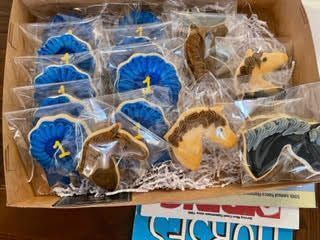
My take-aways were the following:
Once the show begins, successful show managers allow experienced staff to do their jobs. Glenda was well prepared and quietly did a lot of problem-solving, maintaining the stress-free atmosphere that made the show enjoyable for competitors. The behind-the-scenes activities hummed along. The office staff had long days and continuous tasks, and always had a smile.
Although the show secretary is adept at multi-tasking, tasks related to computer files need undivided attention and focus. Glenda had planned on an additional secretary to allow Meaghan to have fewer distractions, but some of her seasoned office staff were not able to come. Two office staff had tested positive for COVID and had to isolate. Fortunately, Glenda had enough redundancy in her staffing to keep the show office on track.
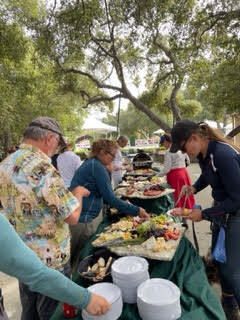
Shows run smoothly when the manager or volunteer coordinator can coordinate volunteers who can help for a short time to get lunches, post results, direct competitors to restrooms and parking, arrange flowers or take water to the judges. This allows the secretary to focus.
When volunteers’ skills, strengths, and personalities are considered, they are able to be successful in performing their duties. An outgoing and welcoming warm-up arena steward can calm a competitor. A quick-thinking e-scribe can adapt and overcome computer issues.
The Internet has become vital to a smooth operation. It is needed for e-scribing, reports, searches, and credit card payments.
E-scribing will be more prevalent in the future and the learning curve is not linear. Experienced e-scribes will be in demand.
Finally, I still have more to learn! My plan is to use the remaining grant funds to pay for travel to shows within 200 miles to get more experience e-scribing and become proficient at scheduling and reporting.
I encourage everyone to apply for this grant and to learn what goes into managing a competition. I learned things I never knew I didn't know and have an even greater appreciation for horse show management. Horse shows are an opportunity for everyone to learn, be rewarded for their training, and to be part of the dressage community.
